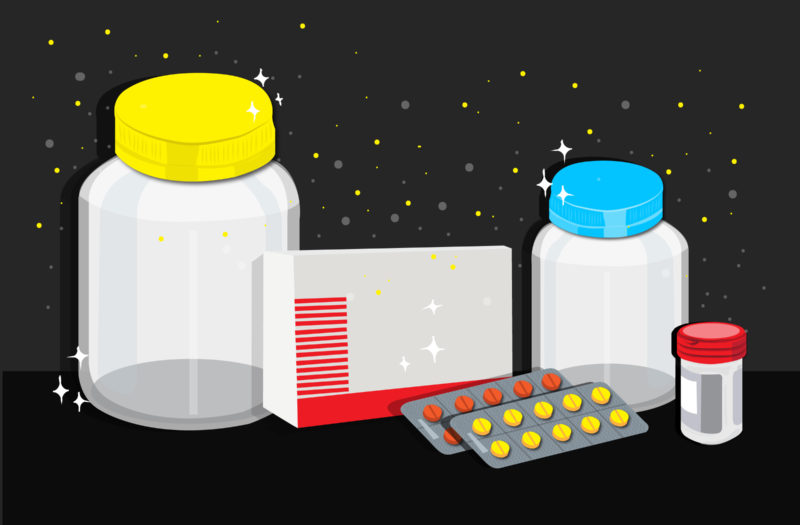Key Takeaways
- NSAIDs reduce inflammation, which helps reduce pain in the short-term, but these drugs might interfere with the healing process.
- Specialized white blood cells called neutrophils, which increase as a result of inflammation, might play an important role in preventing acute pain from becoming chronic.
Pain relievers in the NSAID (non-steroidal anti-inflammatory drug) class work, in part by blocking inflammation. But a new study suggests that such an approach might backfire, at least when it comes to managing acute pain.
Acute pain is the kind that comes on quickly and severely, perhaps as a result of an accident or injury. You might also experience acute pain as a result of overdoing exercise or moving furniture.
Most people with acute pain start to feel better as soon as the underlying tissue heals — usually within days or weeks, or maybe up to three to six months in the case of a more serious injury. In some instances, however, acute pain never fully resolves; instead, it becomes chronic, aka long-lasting pain.
While treating acute pain is certainly important, a group of researchers from Canada now believe that using NSAIDs might cause problems by causing pain to linger. The research, published in Science Translational Medicine, found that using drugs that block a special white blood cell called neutrophils might cause acute pain to become chronic.
The study had a few parts. In one of them, the scientists treated mice with NSAIDs or steroids. As expected, they found these drugs eased acute pain, but it turned out that mice given these drugs had pain that lasted two to 10 times longer compared to mice given different types of pain relievers that did not block neutrophils.
The scientists also injected neutrophils into some mice given NSAIDs or steroids and found that doing so prevented the pain from become long-lasting.
In another part of the study, the researchers reviewed data on 500,000 people in a UK registry. They found that those who took NSAIDs to treat acute lower back pain were more apt to still have back pain two to 10 years later compared to those who did not use these meds.
They also analyzed immune cells from nearly 100 people while they had acute low back pain and again three months later. They found that specific changes related to neutrophils and inflammation had occurred in the cells of people whose acute pain went away within the three months; those same changes did not occur in people whose acute pain turned chronic. This suggests that short-term inflammation driven by neutrophils might help prevent acute pain from becoming chronic.
Scientists have long known that temporary inflammation is an important part of the healing process. When you stub your toe, for instance, the pain and redness that follows is a sign that immune cells are rushing to the area and starting to repair the damage. It’s when inflammation persists too long — as it does in inflammatory types of arthritis and many other conditions — that it becomes problematic because it harms healthy tissue.
The authors of this study concluded that “the management of acute inflammation may be counterproductive for long-term outcomes of [low back pain] sufferers.”
“Inflammation occurs for a reason, and it looks like it’s dangerous to interfere with it,” study co-author Jeffrey Mogil, PhD, told MDEdge.
The takeaway: If you’re using NSAIDs regularly to manage acute pain, talk to your doctor about alternative treatments.
Be Part of Research with ArthritisPower
Join CreakyJoints’ patient-centered research registry and participate in voluntary studies about managing arthritis. Learn more and sign up here.
Parisien, M et al. “Acute Inflammatory Response via Neutrophil Activation Protects against the Development of Chronic Pain.” Science Translational Medicine. 2022: doi: https://doi.org/10.1126/scitranslmed.abj9954.
Shiffer E. How we treat acute pain could be wrong. Neurology Reviews. June 2022. https://www.mdedge.com/neurology/article/255548/pain/how-we-treat-acute-pain-could-be-wrong.
UC Davis Health. Acute pain versus chronic pain. https://health.ucdavis.edu/livinghealthy/topic/pain-management/acute-pain-verses-chronic-pain.html.
UW Medicine. Managing Arthritis Pain. https://orthop.washington.edu/patient-care/articles/arthritis/managing-arthritis-pain.html.






